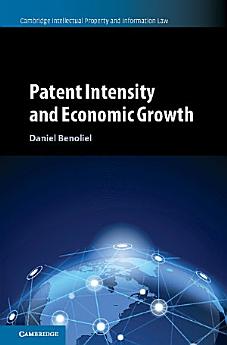Patent Intensity and Economic Growth
ডিচে ২০১৭ · Cambridge Intellectual Property and Information Law কিতাপ 38 · Cambridge University Press
ইবুক
431
পৃষ্ঠা
reportমূল্যাংকন আৰু পৰ্যালোচনা সত্যাপন কৰা হোৱা নাই অধিক জানক
এই ইবুকখনৰ বিষয়ে
Economic growth has traditionally been attributed to the increase in national production arising from technological innovation. Using a panel of seventy-nine countries bridging the North-South divide, Patent Intensity and Economic Growth is an important empirical study on the uncertain relationship between patents and economic growth. It considers the impact of one-size-fits-all patent policies on developing countries and their innovation-based economic growth, including those policies originating from the World Intellectual Property Organization, the World Trade Organization and the World Health Organization, as well as initiatives derived from the TRIPS Agreement and the Washington Consensus. This book argues against patent harmonization across countries and provides an analytical framework for country group coalitioning on policy at UN level. It will appeal to scholars and students of patent law, national and international policy makers, venture capitalist investors, and research and development managers, as well as researchers in intellectual property, innovation and economic growth.
লিখকৰ বিষয়ে
Daniel Benoliel is a law professor at the University of Haifa Faculty of Law and Haifa Center of Law and Technology (HCLT). His main fields of expertise include international intellectual property, patent law and innovation, public international law and entrepreneurship law. Benoliel holds a Doctorate in law (J.S.D.) from University of California, Berkeley School of Law (Boalt Hall) and is a John M. Olin Research Fellow as well as a Yale Law School Information Society Project (ISP) Visiting Fellow alumnus. Benoliel has received numerous prizes, awards and research grants in these fields.
এই ইবুকখনক মূল্যাংকন কৰক
আমাক আপোনাৰ মতামত জনাওক।
পঢ়াৰ নির্দেশাৱলী
স্মাৰ্টফ’ন আৰু টেবলেট
Android আৰু iPad/iPhoneৰ বাবে Google Play Books এপটো ইনষ্টল কৰক। ই স্বয়ংক্রিয়ভাৱে আপোনাৰ একাউণ্টৰ সৈতে ছিংক হয় আৰু আপুনি য'তে নাথাকক ত'তেই কোনো অডিঅ'বুক অনলাইন বা অফলাইনত শুনিবলৈ সুবিধা দিয়ে।
লেপটপ আৰু কম্পিউটাৰ
আপুনি কম্পিউটাৰৰ ৱেব ব্রাউজাৰ ব্যৱহাৰ কৰি Google Playত কিনা অডিঅ'বুকসমূহ শুনিব পাৰে।
ই-ৰীডাৰ আৰু অন্য ডিভাইচ
Kobo eReadersৰ দৰে ই-চিয়াঁহীৰ ডিভাইচসমূহত পঢ়িবলৈ, আপুনি এটা ফাইল ডাউনল’ড কৰি সেইটো আপোনাৰ ডিভাইচলৈ স্থানান্তৰণ কৰিব লাগিব। সমৰ্থিত ই-ৰিডাৰলৈ ফাইলটো কেনেকৈ স্থানান্তৰ কৰিব জানিবলৈ সহায় কেন্দ্ৰত থকা সবিশেষ নিৰ্দেশাৱলী চাওক।







